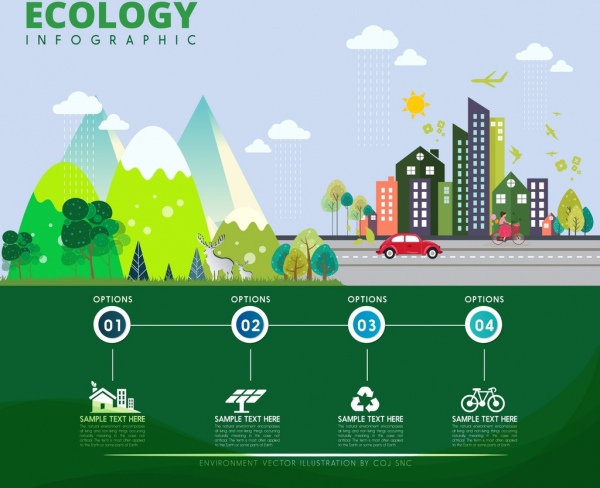SPOILER ALERT!
Eco-Friendly Landscaping: Lasting Practices For A Greener Yard
Authored By-Bean Brask
When you think about landscape design, consider just how your options can affect the atmosphere. By opting for indigenous plants, as an example, you not just improve your garden's appeal however also support regional wild animals. Applying water-saving watering methods can better contribute to sustainability. https://www.google.com/maps/place/A+Cut+Above+Landscaping/@35.40862,-80.863594,14z/data=!4m6!3m5!1s0xa379a2759c597b5f:0xf779eddbaca8e873!8m2!3d35.4086201!4d-80.8635943!16s%2Fg%2F11tg76nn1n?hl=en&entry=ttu&g_ep=EgoyMDI1MDEwNi4xIKXMDSoASAFQAw%3D%3D concerning exactly how composting and natural gardening practices can enhance your dirt? Let's check out these eco-friendly techniques that can change your yard into a growing, well balanced community.
When you pick indigenous plants for your landscape, you're not just enhancing your yard's appeal; you're also cultivating biodiversity.
Native plants are adapted to your regional environment and dirt, making them much easier to maintain and a lot more resistant. They give vital environments and food for regional wildlife, consisting of birds, bees, and butterflies, advertising a well balanced ecosystem.
By growing indigenous species, you decrease the demand for plant foods and pesticides, reducing your ecological effect. You'll additionally save water, as these plants commonly call for less watering than non-natives.
Plus, you'll find a vivid range of colors and appearances that alter with the seasons. Welcome the advantages of native plants, and enjoy your garden transform into a thriving haven for nature.
As you make every effort to develop a sustainable landscape, implementing water-saving watering strategies is crucial for preserving this valuable source.
Begin by mounting drip watering systems that supply water straight to plant origins, lessening evaporation. Think about using soaker hoses for garden beds, enabling dampness to leak gradually into the soil.
Timing your watering is necessary; morning or late night is excellent to minimize water loss. Furthermore, invest in rainfall barrels to gather rain for watering, supplying a natural source of water.
Incorporating mulch around plants helps maintain moisture in the dirt, lowering the demand for constant watering.
By accepting composting and natural gardening techniques, you can significantly improve your landscape's health and sustainability.
Composting changes kitchen scraps and lawn waste into nutrient-rich dirt, improving your yard's fertility and structure. Beginning a compost heap or bin, blending environment-friendlies like veggie peels off with browns such as dried out leaves.
Incorporating natural gardening techniques means avoiding artificial plant foods and chemicals. Rather, use all-natural alternatives, like compost tea or neem oil, to nurture plants and control pests.
Select indigenous plants and treasure ranges that thrive in your local environment, lowering the requirement for added water and chemicals.
Verdict
Integrating environmentally friendly landscaping methods not only boosts your yard's beauty yet also sustains the atmosphere. By selecting native plants, making use of efficient watering strategies, and embracing composting and natural gardening, you produce a flourishing environment that benefits both your plants and local wildlife. These sustainable approaches aid you save sources while promoting biodiversity. So, https://comomag.com/2020/06/29/fresh-ideas-for-an-outdoor-space/ into these practices and enjoy your yard thrive while making a positive influence on the earth!

When you think about landscape design, consider just how your options can affect the atmosphere. By opting for indigenous plants, as an example, you not just improve your garden's appeal however also support regional wild animals. Applying water-saving watering methods can better contribute to sustainability. https://www.google.com/maps/place/A+Cut+Above+Landscaping/@35.40862,-80.863594,14z/data=!4m6!3m5!1s0xa379a2759c597b5f:0xf779eddbaca8e873!8m2!3d35.4086201!4d-80.8635943!16s%2Fg%2F11tg76nn1n?hl=en&entry=ttu&g_ep=EgoyMDI1MDEwNi4xIKXMDSoASAFQAw%3D%3D concerning exactly how composting and natural gardening practices can enhance your dirt? Let's check out these eco-friendly techniques that can change your yard into a growing, well balanced community.
Choosing Native Plants for Biodiversity
When you pick indigenous plants for your landscape, you're not just enhancing your yard's appeal; you're also cultivating biodiversity.
Native plants are adapted to your regional environment and dirt, making them much easier to maintain and a lot more resistant. They give vital environments and food for regional wildlife, consisting of birds, bees, and butterflies, advertising a well balanced ecosystem.
By growing indigenous species, you decrease the demand for plant foods and pesticides, reducing your ecological effect. You'll additionally save water, as these plants commonly call for less watering than non-natives.
Plus, you'll find a vivid range of colors and appearances that alter with the seasons. Welcome the advantages of native plants, and enjoy your garden transform into a thriving haven for nature.
Implementing Water-Saving Watering Techniques
As you make every effort to develop a sustainable landscape, implementing water-saving watering strategies is crucial for preserving this valuable source.
Begin by mounting drip watering systems that supply water straight to plant origins, lessening evaporation. Think about using soaker hoses for garden beds, enabling dampness to leak gradually into the soil.
Timing your watering is necessary; morning or late night is excellent to minimize water loss. Furthermore, invest in rainfall barrels to gather rain for watering, supplying a natural source of water.
Incorporating mulch around plants helps maintain moisture in the dirt, lowering the demand for constant watering.
Composting and Organic Gardening Practices
By accepting composting and natural gardening techniques, you can significantly improve your landscape's health and sustainability.
Composting changes kitchen scraps and lawn waste into nutrient-rich dirt, improving your yard's fertility and structure. Beginning a compost heap or bin, blending environment-friendlies like veggie peels off with browns such as dried out leaves.
Incorporating natural gardening techniques means avoiding artificial plant foods and chemicals. Rather, use all-natural alternatives, like compost tea or neem oil, to nurture plants and control pests.
Select indigenous plants and treasure ranges that thrive in your local environment, lowering the requirement for added water and chemicals.
Verdict
Integrating environmentally friendly landscaping methods not only boosts your yard's beauty yet also sustains the atmosphere. By selecting native plants, making use of efficient watering strategies, and embracing composting and natural gardening, you produce a flourishing environment that benefits both your plants and local wildlife. These sustainable approaches aid you save sources while promoting biodiversity. So, https://comomag.com/2020/06/29/fresh-ideas-for-an-outdoor-space/ into these practices and enjoy your yard thrive while making a positive influence on the earth!
